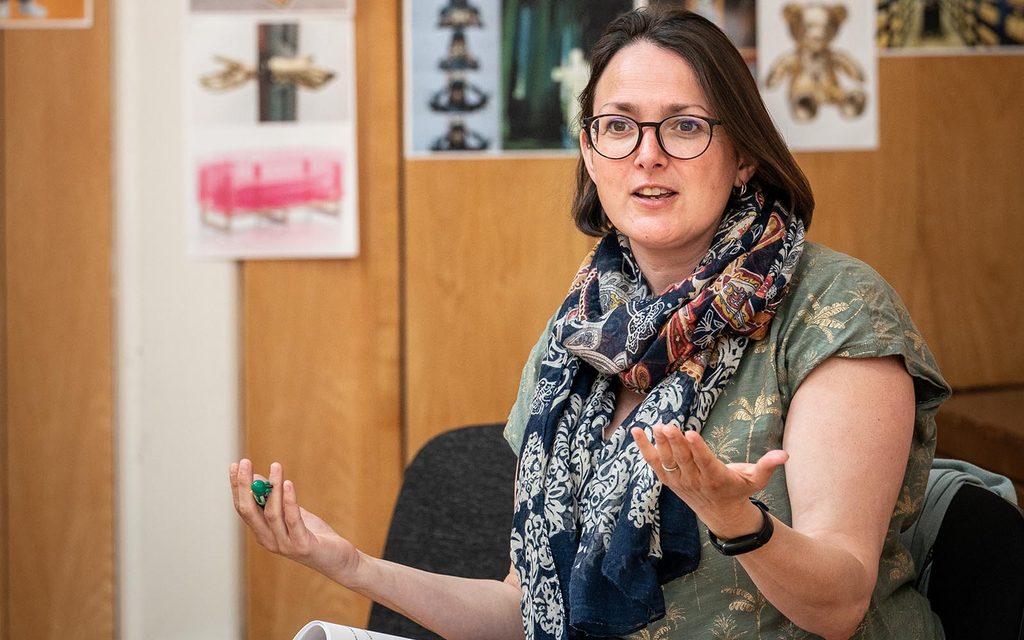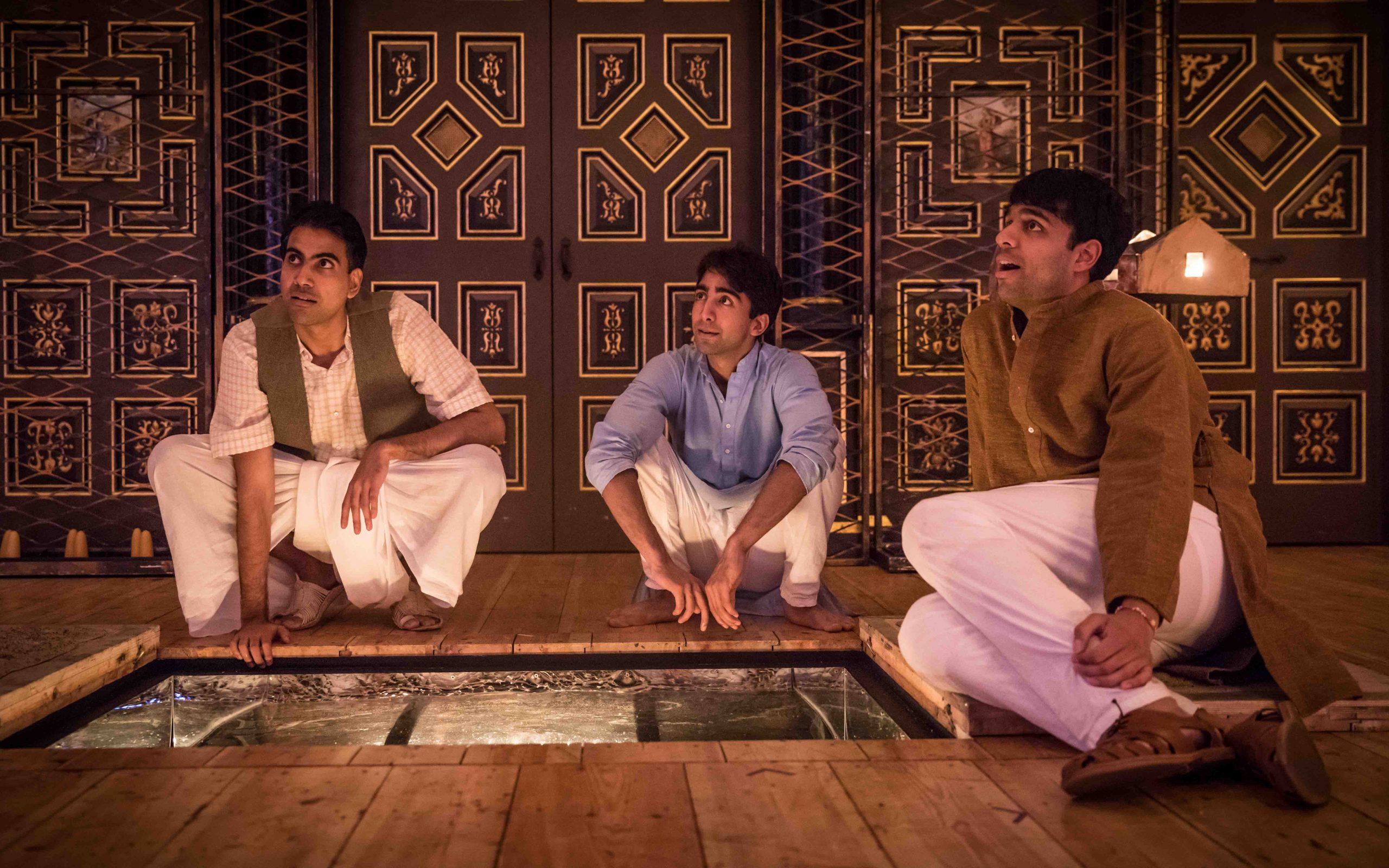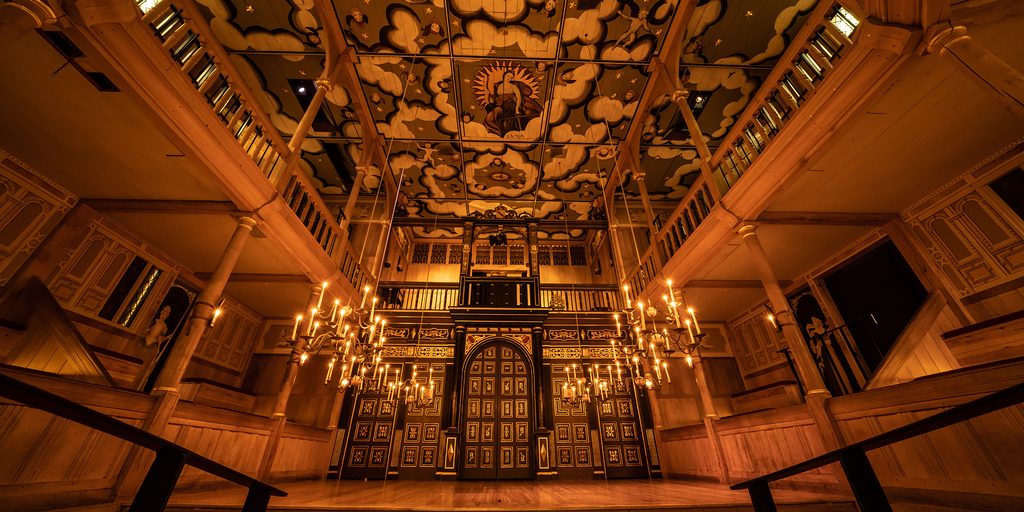Posted: 10 November 2022
Hakawatis: writing a story about storytellers

Playwright and Globe Writer-in-Residence, HANNAH KHALIL shares how she has collaborated with three extraordinary female writers of Arab heritage to fearlessly reimagine One Thousand and One Nights for the enchanting Sam Wanamaker Playhouse
In 2017 something magical happened: I saw a play at the Sam Wanamaker Playhouse for the first time. I’d been in the Globe Theatre many, many times, but this trip to the neighbouring Sam Wanamaker Playhouse to see LIONS AND TIGERS by Tanika Gupta was a first. What a night! I adored the play and production, but I actually fell in love that night with the theatre, which is surely the most beautiful theatre in the country. And as I left walking on a cloud at the end of the performance I wondered what I’d write for that beautiful space if I was ever lucky enough to get the chance.

Amazingly, a few steps further along the Thames inspiration struck… I had seen two versions of One Thousand and One Nights by the writers Hanan Al-Shaykh and Suhayla El-Bushra, both productions coincidentally at my runner-up for most beautiful theatre in the UK the Lyceum in Edinburgh. And somehow my brain churned those into the Sam Wanamaker Playhouse and I started thinking about Scheherazade. Scheherazade is the main character in the frame narrative of 1001 Nights. The story goes that King Shahryār’s wife is unfaithful to him, so he resolves to marry a new virgin every day and to have her beheaded the next morning as his revenge on all women kind. Enter Scheherazade a woman with a plan – she agrees to marry the King, hoping her exciting tales will keep the monarch hooked night after night, saving her and all the other women in the kingdom from execution.

A germ of an idea formed which led to this play, HAKAWATIS, which I pitched to the Globe’s Artistic Director, Michelle Terry: ‘What if Scheherazade isn’t the brilliant storyteller of fable – what if she’s good, but not as good as she thinks? Well, all the women behind her in line for the King’s bloody wed-bed-and-behead revenge will be wanting her to succeed. So what if they got together and started writing stories for Scheherazade?… Scheherazade’s writers-room’.
I also suggested that in writing the piece the approach could mirror the story and I could bring on three other women of Arab heritage to write new tales to be incorporated into the play, amongst the others that I would include from the original. I was overjoyed when Michelle agreed. So I set about finding my writing collaborators. I immediately knew who I wanted to ask: after seeing Hanan and Suhayla’s adaptations I felt they’d be the perfect choice and I was thrilled when they agreed. I’d also recently read a short piece by a writer called Sara Shaarawi which I thought was incredibly skilful and feminist and full of passion, so I contacted Sara too who also said yes much to my delight. I gave them the pitch and an open brief – write a story for the Hakawati women to pass to Scheherazade.
While they were doing that, I was writing the play itself which moves between action and storytelling. I had to write the action leaving spaces for stories, and as I had no idea what my collaborators would write I was crossing my fingers I’d be able to sew their stories into the whole seamlessly. When they delivered their drafts I was delighted by all three – each was unique and funny and sexy and compelling. And I loved the challenge of deciding which character told which story and finding ways to insert them into the play… then choosing other lesser-known stories from the original to include. It was a really creative and exciting process.

Hakawati means storyteller in Arabic and the storyteller holds a very important place in our culture. The oral as opposed to written tradition is one that has been prevalent in the Arab world including my own Palestinian heritage. But as someone who writes stories down for a living I was excited to bring that oral tradition to life on stage. And what a stage. I cannot tell you what a privilege it is for a playwright to know the space they are writing for. It really makes a difference to how you approach that storytelling. And in the case of the Sam Wanamaker Playhouse, that theatre has such personality and character and mood that cannot be ignored in the writing or performing of a piece. So, along with our five incredible actresses of Arab heritage on stage we have the sixth character of the Sam Wanamaker space presiding over the events of the play. I do hope you’ll come and experience the magic of it all and some dark storytelling by candlelight with us this winter.
HAKAWATIS is a Tamasha and Shakespeare’s Globe co-production. It opens at the Sam Wanamaker Playhouse from 1 December until 14 January.
This post was originally featured on the Shakespeare’s Globe blog.